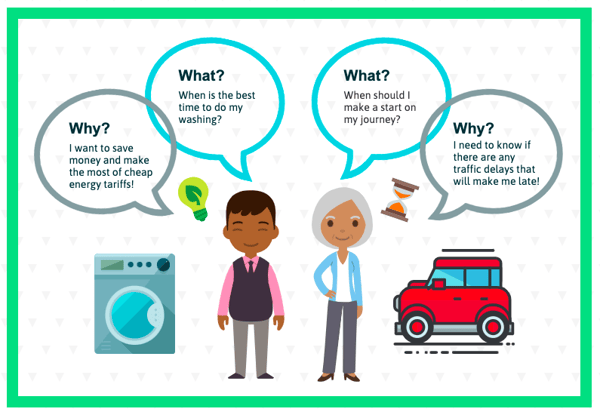Share this
How can you turn knowledge into your most valuable asset?
June 17, 2021

When was the last time that a library and information conference inspired your intellectual curiosity? Why is it so important to think about information ubiquity? What apps should we be looking for? What should we be doing to support our end-users? These, and many other philosophical questions have been discussed in papers at recent library conferences.
Why think about information ubiquity now?
The LIDA 2021 (Libraries in the Digital Age) conference keynote by Professor Nicholas Belkin was fascinating. This conference has been running for 20 years and in that time, the term “digital” has evolved. Information and communication technologies have moved far beyond the initial stage of availability of “traditional information in digital form” to a situation in which people’s very environment is technology driven.
He asks that “information people rethink everything in light of our new information milieu”. Belkin has spent his entire scholarly career thinking about information ubiquity and how it impacts those who aim to support people’s interactions with information. He believes that information people need to rethink the concepts of internal knowledge and external information.
He pointed out that in the “evolving technological and social-technical environment, people are constantly and ubiquitously immersed in a sea of information”. This must result in changes to our behaviour - how can it not? We are carrying phones and laptops, wearing watches and rings, which collect and disseminate an infinite amount of information. This leads to positives and negatives.
Positives and negatives of information ubiquity
| Positives | Negatives |
| Opportunities to know and understand anything you are interested in | Distraction and the danger of reduced attention spans |
| On demand support and guidance for every aspect of your life - personal and professional | Intrusion and loss of privacy |
| Access to information in a way that suits you - spoken, written, images, immersion | Too many choices leading to problems with decision making |
From filing cabinets to Siri
To illustrate Belkin’s point, An Xiao Mina explores the evolution of information storage and retrieval in a wonderful article about the history of filing cabinets. Is it too much to say that the humble filing cabinet’s legacy informs some of our most innovative technologies, including search, Siri, and the way we organise the files on our computers?
Documents in a filing cabinet, cards in a card catalogue, files on a computer and a content aggregation platform all aim to tame - and contain - data. But until we start making connections and applying our experience, it’s not ready to be turned into knowledge. As An Xiao Mina says, “the acquisition of complex knowledge is a multimodal, evolving experience, something modern information systems can only begin to support”.
I put together an image with this acquisition of knowledge in mind. Many of the answers to relatively simple day-to-day questions are data driven. Take the woman in a hurry below - she wants to get from A-B but is sensibly wondering if there are any issues and when she should depart. If she consults the Citymapper app, they might offer the train as a speedier alternative. If she wants a scenic, slow journey, they will suggest the bus through their new Powers routes. Basically, once we have the information, we can make an informed decision!

What happens when the data is incomplete? To return to An Xiao Mina, she cites the coronavirus pandemic as an example of the tension between information and knowledge. When scientists first started collecting data, she said,
Our systems were rife not simply with misinformation—false or misleading information—but with what I call “midinformation” (note the d), or informational ambiguity based on scant or conflicting evidence, in many cases about emerging scientific knowledge. An information environment designed for certainty butted up against a hazier reality…
This recent experience with COVID-19 should give us pause for thought - again. Alex G Smith warned us in 2018 that “many things currently being touted as such are nothing more than data and algorithms”, and that if they are relying on incomplete or inconsistent data to fulfil our “pushed” knowledge, then no wonder adverts or streamed films (or responses to pandemics) sometimes misfire.
For insights into smart cities and the impact of COVID-19, this is fascinating. As with smart meters and energy consumption, information can be found here. Data are parts of a massive jigsaw puzzle, and pieces can be put together to construct unexpected pictures.
What does this mean for information professionals?
Belkin raised some interesting points on one of his conference slides. He suggests that as more information becomes available to people, then our end-users expect - and demand - more. This is something that we can all identify with, and manifests as “but surely there is something out there that does xyz?”. Ultimately it boils down to the so-called Socratic paradox, or, as I prefer, “the more we learn, the less we know".
This is a challenge for end-users because even information people occasionally long for a non-existent “all finding” app. On the bright side, because we have experience with searching for “the right thing, at the right time, in the right place”, we can still support people in their quest for knowledge - even without a super-app! For example, librarians can drive improved user experience, or reconsider how instructions/documentation is produced (more on that shortly).
Information people can aim to:
- Assume responsibility to support people
- Reduce the impact of the negatives mentioned above
- Contribute to, and assist in the design of, a better user experience
- Identify information most likely to be effective/pleasurable for that person, in that context, at that time
John Carroll’s “paradox of the active user”?
If you haven’t researched two paradoxes, read Fahrenheit 451, and got excited about the history of filing cabinets as a consequence of attending a library conference, then clearly you were at the wrong event. If you are involved in creating library manuals/guidance, you will be familiar with John Carroll’s paradox.
Carroll was the person who killed the large, unwieldy instruction manual. Jakob Nielsen summarised the "paradox of the active user" in this way,
Users never read manuals but start using the software immediately. They are motivated to get started and to get their immediate task done: they don't care about the system as such and don't want to spend time up front on getting established, set up, or going through learning packages.
The "paradox of the active user" is a paradox because users would save time in the long term by taking some initial time to optimize the system and learn more about it. But that's not how people behave in the real world, so we cannot allow engineers to build products for an idealized rational user when real humans are irrational: we must design for the way users actually behave.
It’s a great story. Carroll set up a lab, gave secretaries computers and manuals, and then studied them as they tried to accomplish regular office tasks. He tracked “frustration episodes,” observing as subjects became progressively more flummoxed by their manuals. “People would look at me, shaking, and they’d say, ‘I can’t do this.’ And then they’d get up and put their coat on. One person literally had to flee the building,” he says.
The article continues,
According to Carroll, the help we once sought from a manual is now mostly embedded into the apps we use every day. It could also be crowdsourced, with users contributing Q&As or uploading how-to videos to YouTube, or it could be programmed into a weak artificial intelligence such as Siri or Cortana. Help can even be predictive, tracking our keystrokes or vocal cues to steer us away from trouble before we find it.
Therefore, although a lot of technology we use on a daily basis is a sophisticated hi-tech blackbox, the actual interface is designed to be as simple as possible. The device, app, process - whatever it is - will guide you through what you need to do and, in the unlikely event of you getting stuck, you can simply Google what you want to know - instant results on demand.
So where does this leave us?
It’s reassuring to use a system that doesn’t try to second guess you or to offer you a simple “one click” black box solution. A content aggregator like Vable requires an information person to be the intermediary between the end-user and the complex database. People are in control! However it is Vable’s responsibility to work with clients to produce an interface that is intuitive and simple, but also powerful and intelligent.
As Belkin concluded in his “Librarians in an age of information ubiquity” presentation, we are here to support people in their interactions with information in their daily life - we must consider people not as “users of systems, but as interactants with information”. I would go further than that and say that our clients and end-users are also the producers of knowledge. And in a world of information ubiquity, knowledge is the most valuable asset of all.
Share this
- January 2026 (1)
- December 2025 (2)
- November 2025 (2)
- October 2025 (3)
- September 2025 (2)
- August 2025 (2)
- July 2025 (4)
- June 2025 (3)
- May 2025 (2)
- April 2025 (1)
- March 2025 (1)
- October 2024 (1)
- July 2024 (1)
- June 2024 (2)
- May 2024 (2)
- April 2024 (3)
- March 2024 (3)
- February 2024 (4)
- January 2024 (2)
- December 2023 (1)
- November 2023 (2)
- October 2023 (2)
- September 2023 (1)
- August 2023 (3)
- July 2023 (5)
- June 2023 (2)
- May 2023 (2)
- April 2023 (4)
- March 2023 (1)
- February 2023 (1)
- January 2023 (2)
- November 2022 (2)
- September 2022 (2)
- August 2022 (2)
- July 2022 (1)
- June 2022 (1)
- May 2022 (2)
- April 2022 (3)
- March 2022 (1)
- February 2022 (2)
- December 2021 (2)
- November 2021 (2)
- October 2021 (2)
- September 2021 (2)
- August 2021 (2)
- July 2021 (2)
- June 2021 (2)
- May 2021 (1)
- April 2021 (2)
- March 2021 (1)
- February 2021 (3)
- January 2021 (2)
- November 2020 (3)
- October 2020 (1)
- August 2020 (2)
- July 2020 (4)
- June 2020 (1)
- May 2020 (1)
- April 2020 (2)
- March 2020 (2)
- February 2020 (3)
- January 2020 (1)
- December 2019 (2)
- November 2019 (1)
- October 2019 (1)
- September 2019 (1)
- August 2019 (3)
- July 2019 (3)
- June 2019 (3)
- May 2019 (2)
- April 2019 (1)
- March 2019 (2)
- February 2019 (3)
- January 2019 (3)
- December 2018 (1)
- November 2018 (2)
- October 2018 (2)
- September 2018 (1)
- August 2018 (2)
- July 2018 (1)
- June 2018 (2)
- May 2018 (3)
- April 2018 (3)
- March 2018 (1)
- February 2018 (3)
- January 2018 (1)
- November 2017 (1)
- October 2017 (1)
- July 2017 (1)
- April 2017 (2)
- March 2017 (3)
- February 2017 (1)
- January 2017 (1)
- November 2016 (2)
- October 2016 (1)
- September 2016 (1)
- August 2016 (2)
- June 2016 (1)
- May 2016 (1)
- April 2016 (1)


